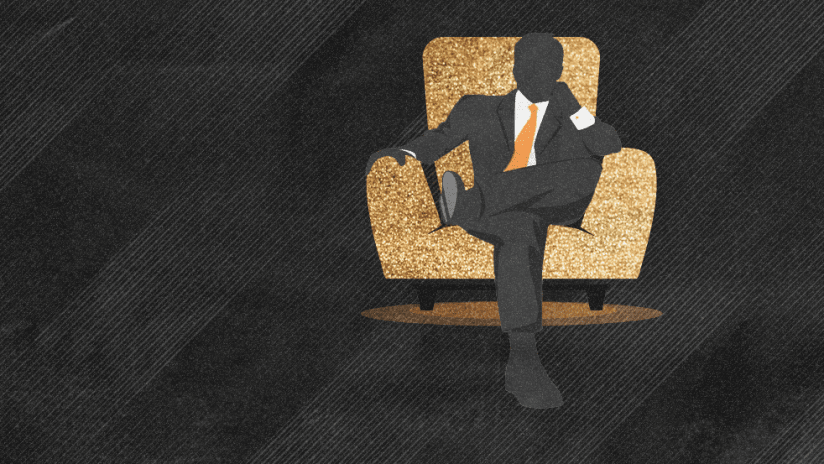Like, I'm sure, the vast majority of you, and maybe even the vast majority of the soccer-watching public in the US and Canada, I have been waking up early each Saturday and Sunday for the past two weeks and mainlining the Bundesliga. It is my favorite European league (defense optional!), so I'd have been doing this anyway, but in These Trying Times™ of ours, it's taken on a new urgency and I've taken new and special joy from it.
Soccer, at least in Germany, and South Korea and a couple of other places, is back. Soccer will hopefully be coming back here soon enough as well.
There are on-field lessons to learn from the first two weeks of games. Those lessons largely stem from 1) rust, and 2) the new rule adjustment that allows five subs at a time. It all feels vaguely off somehow; things aren't flowing the way they should. I'm pretty sure that's natural, given the state of pretty much everything, but it's also noteworthy and maybe presents a competitive advantage if teams aggressively try to identify what's different, what's working, why – and how to incorporate it.
Here is a non-exhaustive list of what I've noticed:
Mistakes Will Be Made
This is true in every league in the world, and especially true during the first few games of the year. Every March and April there is at least one under-talented MLS team that jumps out to a quick, hot start by simplifying their approach and living off of the mistakes of whoever they happen to be playing against. It's not new or novel.
It seems to have held especially true in the Bundesliga in this post-lockdown return. And I'm not necessarily talking about the types of disastrous individual errors that we saw on, say, Augsburg's second and third goals vs. Schalke on Sunday or the Paderborn vs. Hoffenheim laugher, though those are present and notable. Rather I'm talking about a general sluggishness that's made it extraordinarily difficult for anyone* to do anything useful with the ball through two weeks. Teams that try to play out are doing themselves a disservice.
(*) Bayern Munich and Borussia Dortmund excepted.
I don't think this is entirely an accident. Road teams have been very, very happy to let home teams settle in and try to carry the game, and as a result it's been a bloodbath in the betting markets.
The ball has been almost no one's friend.
Play Direct from Midfield
RB Leipzig – and RBNY – do this anyway, so I'm not breaking new ground, but in their 5-0 win over Mainz it was striking how many times they won the ball in midfield and then rather than play the next pass square or even across the zone of density to a presumably open weak side, they would just immediately try to hit a third-line pass forward. Everything was about splitting the closing defenders and inducing another 50/50, and all Red Bull teams are, of course, built to win those 50/50s.
The idea behind it is twofold. First, the shortest path from Point A (where you are) to Point B (the goal) is a straight line, so spending time actively putting your foot on the ball and building up is inefficient. You're better off just constantly moving forward.
Second is that the sluggishness that's plagued teams in their own build-up is also present in defensive reactions, and the better teams have taken advantage (Leverkusen's first in their big win over Borussia Moenchengladbach being a good example).
When a team commits a turnover or loses a 50/50, they have just disorganized themselves. Don't do them a favor and give them a chance to rectify that situation. Jam it down their throats.
Mass Subs Early
Here's the caveat: There hasn't actually been a lot of this. The one time I've seen it was in the wildly entertaining Koln vs. Dusseldorf 2-2 draw on Sunday, when Koln manager Markus Gisdol subbed on three players at the hour mark. That was two minutes after they'd missed an equalizing penalty attempt, and one minute before they'd concede on the break to go down 2-0.
Everybody claims control of the game once they go down 2-0 unless they're truly terrible, but it was night-and-day after those subs, and the field almost entirely tilted. Managers should be more aggressive with substitutes than they are anyway (I've seen studies that suggest the 55th minute is the best time to make a sub – how many 55th-minute subs do you ever see), but now with five subs available and the compressed schedule making fitness a question for literally every field player, the time is now to do whole damn line changes.
If you're 10 minutes into the second half and the game is not what you want it to be, change the conversation. The five subs adjustment is designed to reward first-movers, and I kind of suspect the dam is going to break following Gisdol's gambit.
Of note is that none of the above exists only in the world of post-lockdown, empty-stadium bizarro league play. Managers, as I wrote, should almost always be more aggressive with their subs (even when they only have three of them). Winning midfield 50/50s and playing direct has become standard practice for every top-tier team on the planet, save maybe for Barcelona. Pressing teams into mistakes and punishing sloppy build-up play is just... duh.
But these have all become outsized factors over the past two weeks in Germany. Chances are the same will be the case in MLS as well.










